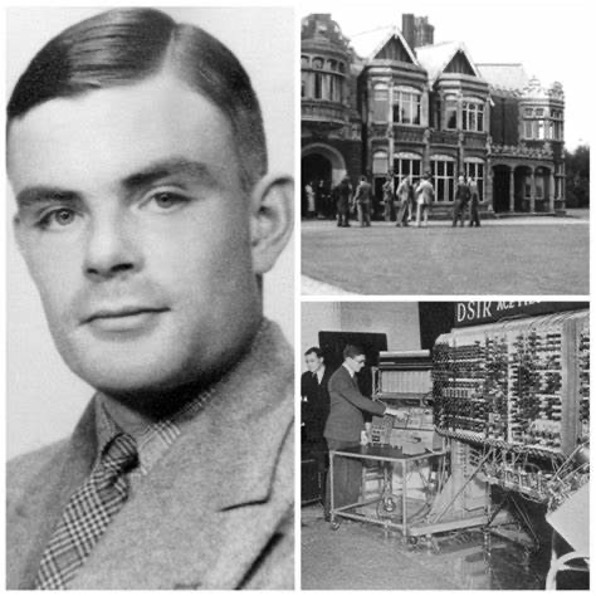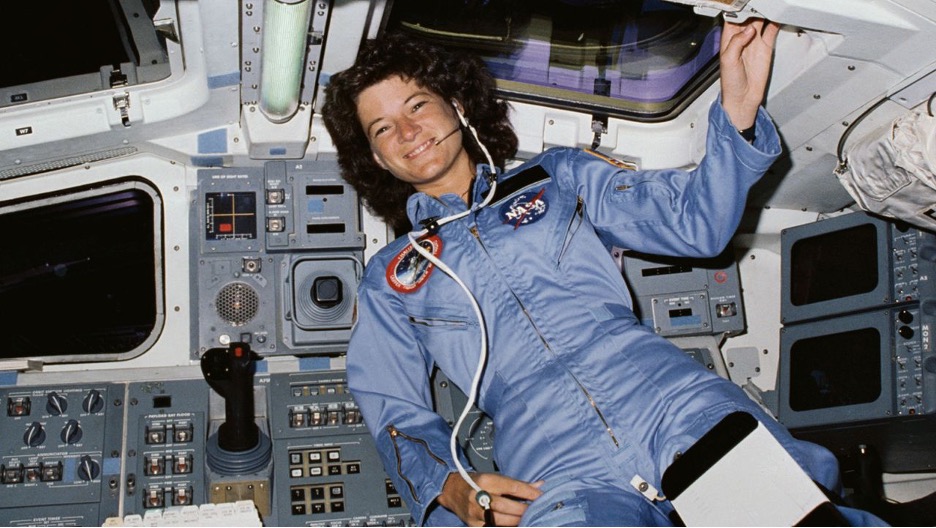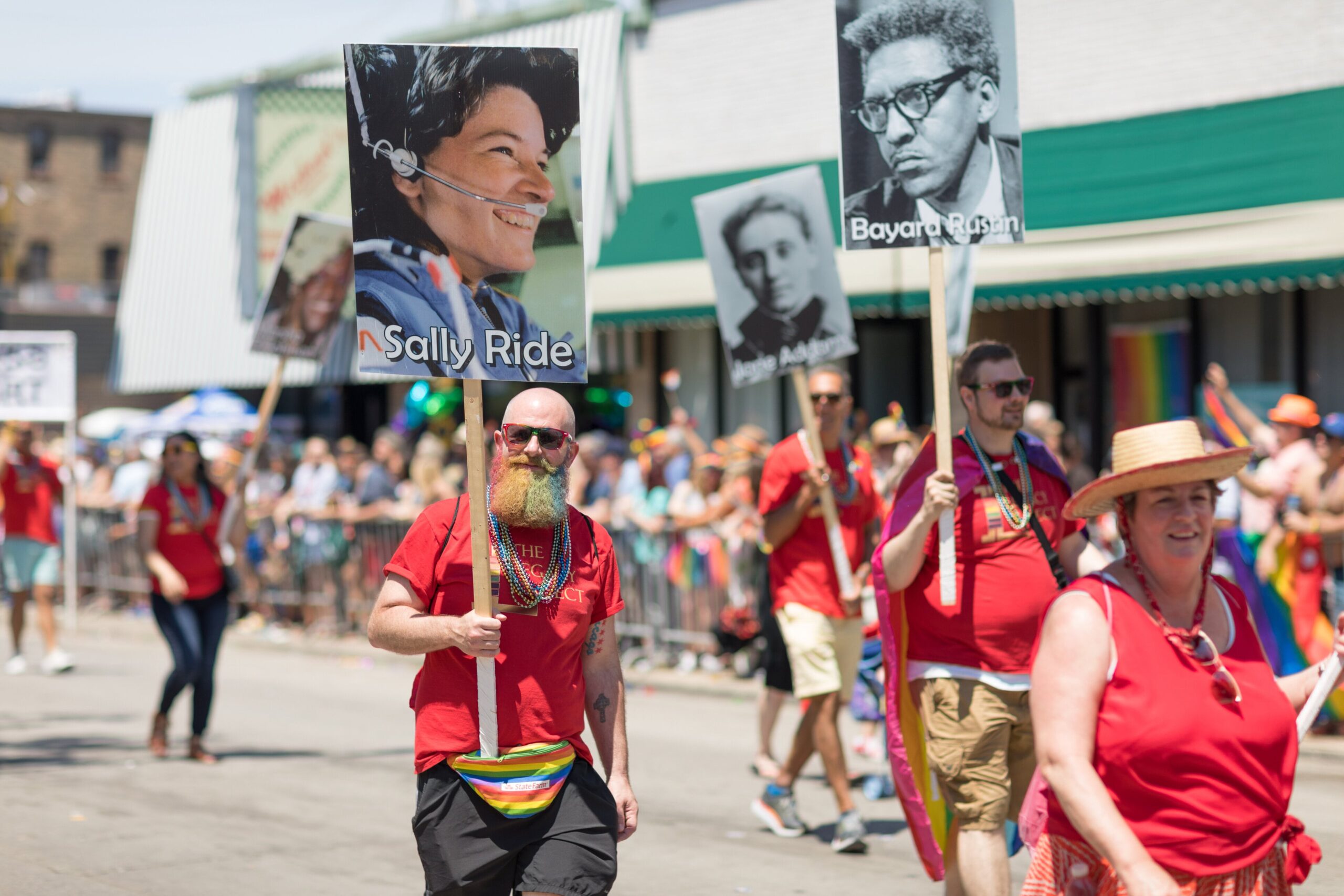November 18 marks the International Day of LGBTQ+ in science, tech, engineering, and math (STEM)! Get ready to dive into the extraordinary world of STEM with STARLIMS as we shine a spotlight on the brilliance and resilience of LGBTQ+ individuals. Let’s celebrate and honor their groundbreaking contributions to our world.
In the spirit of recognition, we’re turning the spotlight on two trailblazing LGBTQ+ STEM icons: the incomparable Alan Turing and the stellar Sally Ride.
Alan Turing – The Mastermind of Modern Computer Science
The brilliance and significance of LGBTQ+ pioneer Alan Turing’s life and work was not fully aware to the public until long after his death by his own hand in 1954. Although his impact on computer science was widely acknowledged, it wasn’t until the 1990s that the full nature of his role in cracking the Enigma code in the Second World War was declassified.
Turing was born in London in 1912. Attending both Cambridge and Princeton, Turing was an exceptionally gifted mathematician and statistician. At the dawn of WW2, Turing was already working for the British Government’s Code and Cypher School, and in 1939 he took up a full-time role at Bletchley Park – where secret work was carried out to decipher the military codes used by Germany and its allies.
Turing (and most of Bletchley Park’s) focus was in cracking the Enigma code used by the German forces to encrypt their messages. Polish mathematicians had worked out how to read Enigma messages and shared this information with the British. However, the Germans increased its security at the outbreak of war by changing the cipher system daily, making the task of understanding the code even more difficult. Turing set about cracking the Enigma messages, inventing a machine known as the “Bombe” that helped significantly reduce the work of codebreakers – largely women with little or no formal codebreaking education.

By the mid-1940s German Air Force signals were being read at Bletchley and the intelligence gained from them was significantly helping the war effort. To prevent the German forces from realizing the code had been cracked however, Allied forces could not react to every decrypted transmission and sometimes had to leave their forces in harm’s way or miss out on strategic opportunities for preservation of the decryption knowledge. Estimates suggest the cracking of Enigma shortened WW2 between two to four years and prevented a full invasion of Britain.
Following the war, but still under the regulations of the Official Secrets Act that forbade Turing from speaking about his wartime activities, he worked on the creation of the Automatic Computing Engine (ACE) at the National Physical Laboratory. ACE is considered by most mathematicians and computer scientists to be the world’s first official computer as we recognize it today. Turing would later, in 1949, become Deputy Director of the Computing Machine Laboratory at the Victoria University of Manchester, working on software for one of the earliest stored-program computers – the Manchester Mark 1.
In 1952, Turing was arrested for homosexuality – which was then illegal for men (not women) in Britain. Subsequently Turing was found guilty of “gross indecency.” Turing was given the option of a prison sentence or chemical castration, of which he chose the latter. The conviction destroyed his reputation however and led to the removal of his security clearance which barred him from continuing with his cryptographic consultancy for the Government Communications Headquarters.
On June 8,1954 Alan Turing was found dead at his home as a result of self-inflicted cyanide poisoning.
In 2014 – 62 years following his arrest, Alan Turing was given a posthumous royal pardon from Queen Elizabeth II after bills were submitted in the British Parliament and then through the House of Lords. The Queen’s action was only the fourth royal pardon granted since the conclusion of the Second World War. Despite this, other sentences imposed on gay and bisexual men littered British legal system like unfortunate souvenirs of a bygone era. The Turning Law was enacted in 2016 in which the British government proclaimed that all gay and bisexual men previously convicted of now-abolished sexual offences in England and Wales were to receive full posthumous pardons. Since then, the Alan Turing Law has gone on to secure pardons for 75,000 others previously convicted of similar crimes.
Without the work from Alan Turning, the world we know today may not exist in any form as his contributions greatly shortened the length of World War 2, saved tens of thousands of lives on the front lines by providing life-saving real-time intelligence, and made the interface you are reading this on possible. That being said however, his life was tragically cut short following all of his accomplishments being ripped from him simply for being a gay man in the 1950s.
We honor Turing’s legacy now and going forward by ensuring that his brilliance is never forgotten while acknowledging how his humanity and dignity, for so many years, was.
Sally Ride – Breaking the Glass Ceiling in Space
Dr. Sally Ride was an American physicist and astronaut known for being the first American woman to go to space as well as, at the time, being the youngest astronaut to go into space at the age of 32. Her parents supported her interest in science from a young age, and while she considered a career in professional tennis, Physics won out.
Ride was one of nearly 10,000 applicants who answered an advertisement to join the space program and was officially accepted by NASA in 1978 as part of an ongoing initiative to bring women and Americans of non-Caucasian decent into the space program and, in particular, the new shuttle program. Ride was instrumental in helping develop the space shuttle’s robot arm and served as CapCom—the individual(s) on the ground who communicate directly with the shuttle crew—on two of its missions.
In 1983, she became the first American woman in space, and the youngest, as a crew member on Challenger for the STS-7 mission. Ride usually tried to downplay the importance of her gender, but still had to field a number of incredibly biased questions from the media that would never have been posed to her male counterparts.

She went into space again for STS-41-G, and was in training for her third mission when, in 1986, the shuttle Challenger was destroyed in an explosion on liftoff. Ride was appointed to the committee to investigate the disaster and was the only one on the NASA side to support the engineering team that had warned of technical problems due to the weather and O-rings prior to lift-off.
Dr Ride retired from NASA in 1987 and began to teach, dedicating herself to encouraging children, especially young girls, to love science. Ride served as the Director of the California Space Science Institute, a research institute of the University of California. She also worked as a physicist and physics professor at the University of California, San Diego. Ride was a member of the President’s Committee of Advisors on Science and Technology and served on the Advisory Board of the National Women’s History Museum.
Dr Ride died on July 23, 2012, after a nearly two-year battle with pancreatic cancer at the age of 61. During her life, Ride kept her personal life exceptionally private. She married fellow astronaut Steve Hawley in 1982, but they divorced in 1987. After her passing, Tam O’Shaughnessy opened up about their 27-year relationship. They met as children while competing in tennis competitions, remained close friends, and the friendship blossomed into love. Ride and O’Shaughnessy were open about their relationship as partners and as business partners, especially toward the end of Ride’s life. Not only is Ride the first American woman in space, but she is also the first openly acknowledged gay astronaut. In 2013, President Obama posthumously honored Ride with the Presidential Medal of Freedom, and O’Shaughnessy accepted the award.
Dr. Ride was passionate about improving science education and helping young people – especially girls – to foster an interest in science, which had long been a male-dominated realm. One of her many initiatives was an organization called Imaginary Lines which still operates today and has a mission of supporting girls who are interested in math, science, and technology. In addition, Ride and O’Shaughnessy also wrote seven children’s books with space exploration themes as well as also establishing Sally Ride Science, a nonprofit organization that encourages children from all backgrounds to take an interest in STEM. Sally Ride never set out to be a pioneer in the LGBT world, however we would be remiss to not recognize her accomplishments within the STEM world, the humanitarian space, and her sheer drive for adventure.
Introducing PRISM, the LGBTQ+ Pride Employee Resource Group (ERG)
We celebrate LGBTQ+ individuals in STEM to amplify their invaluable talents and contributions, as history has often overlooked or marginalized their achievements. To the LGBTQ+ STEM community within STARLIMS and beyond, we are deeply grateful for the work you do and the way your efforts have improved lives around the globe.
STARLIMS is excited to announce the launch of our first ERG: PRISM, the LGBTQ+ Pride ERG. The Mission of PRISM is to create an inclusive workplace environment that embraces and celebrates the vibrant community of LGBTQ+ employees at STARLIMS, as well as to promote a culture of diversity and equality within STARLIMS and beyond.
PRISM is open to all STARLIMS employees, regardless of sexual orientation, gender identity or gender expression, and will provide a community for connection, networking, and support. Our purpose is to encourage all employees at STARLIMS to bring their authentic selves to work and feel empowered to achieve their full potential.
We’re excited to share more as the ERG grows.


